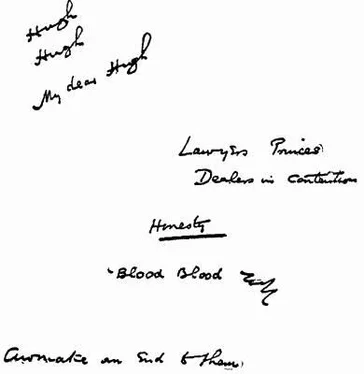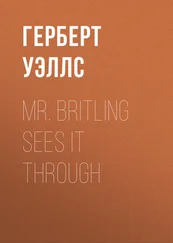Herbert Wells - Mr. Britling Sees It Through
Здесь есть возможность читать онлайн «Herbert Wells - Mr. Britling Sees It Through» весь текст электронной книги совершенно бесплатно (целиком полную версию без сокращений). В некоторых случаях можно слушать аудио, скачать через торрент в формате fb2 и присутствует краткое содержание. Жанр: Классическая проза, на английском языке. Описание произведения, (предисловие) а так же отзывы посетителей доступны на портале библиотеки ЛибКат.
- Название:Mr. Britling Sees It Through
- Автор:
- Жанр:
- Год:неизвестен
- ISBN:нет данных
- Рейтинг книги:4 / 5. Голосов: 1
-
Избранное:Добавить в избранное
- Отзывы:
-
Ваша оценка:
- 80
- 1
- 2
- 3
- 4
- 5
Mr. Britling Sees It Through: краткое содержание, описание и аннотация
Предлагаем к чтению аннотацию, описание, краткое содержание или предисловие (зависит от того, что написал сам автор книги «Mr. Britling Sees It Through»). Если вы не нашли необходимую информацию о книге — напишите в комментариях, мы постараемся отыскать её.
Mr. Britling Sees It Through — читать онлайн бесплатно полную книгу (весь текст) целиком
Ниже представлен текст книги, разбитый по страницам. Система сохранения места последней прочитанной страницы, позволяет с удобством читать онлайн бесплатно книгу «Mr. Britling Sees It Through», без необходимости каждый раз заново искать на чём Вы остановились. Поставьте закладку, и сможете в любой момент перейти на страницу, на которой закончили чтение.
Интервал:
Закладка:
And to that he wrote, to that dimly apprehended figure outside a circle of the light like his own circle of light—which was the father of Heinrich, which was great Germany, Germany which lived before and which will yet outlive the flapping of the eagles....
Our boys , he wrote, have died, fighting one against the other. They have been fighting upon an issue so obscure that your German press is still busy discussing what it was. For us it was that Belgium was invaded and France in danger of destruction. Nothing else could have brought the English into the field against you. But why you invaded Belgium and France and whether that might have been averted we do not know to this day. And still this war goes on and still more boys die, and these men who do not fight, these men in the newspaper offices and in the ministries plan campaigns and strokes and counter-strokes that belong to no conceivable plan at all. Except that now for them there is something more terrible than war. And that is the day of reckoning with their own people.
What have we been fighting for? What are we fighting for? Do you know? Does any one know? Why am I spending what is left of my substance and you what is left of yours to keep on this war against each other? What have we to gain from hurting one another still further? Why should we be puppets any longer in the hands of crowned fools and witless diplomatists? Even if we were dumb and acquiescent before, does not the blood of our sons now cry out to us that this foolery should cease? We have let these people send our sons to death.
It is you and I who must stop these wars, these massacres of boys.
Massacres of boys! That indeed is the essence of modern war. The killing off of the young. It is the destruction of the human inheritance, it is the spending of all the life and material of the future upon present-day hate and greed. Fools and knaves, politicians, tricksters, and those who trade on the suspicions and thoughtless, generous angers of men, make wars; the indolence and modesty of the mass of men permit them. Are you and I to suffer such things until the whole fabric of our civilisation, that has been so slowly and so laboriously built up, is altogether destroyed?
When I sat down to write to you I had meant only to write to you of your son and mine. But I feel that what can be said in particular of our loss, need not be said; it can be understood without saying. What needs to be said and written about is this, that war must be put an end to and that nobody else but you and me and all of us can do it. We have to do that for the love of our sons and our race and all that is human. War is no longer human; the chemist and the metallurgist have changed all that. My boy was shot through the eye; his brain was blown to pieces by some man who never knew what he had done. Think what that means!... It is plain to me, surely it is plain to you and all the world, that war is now a mere putting of the torch to explosives that flare out to universal ruin. There is nothing for one sane man to write to another about in these days but the salvation of mankind from war.
Now I want you to be patient with me and hear me out. There was a time in the earlier part of this war when it was hard to be patient because there hung over us the dread of losses and disaster. Now we need dread no longer. The dreaded thing has happened. Sitting together as we do in spirit beside the mangled bodies of our dead, surely we can be as patient as the hills.
I want to tell you quite plainly and simply that I think that Germany which is chief and central in this war is most to blame for this war. Writing to you as an Englishman to a German and with war still being waged, there must be no mistake between us upon this point. I am persuaded that in the decade that ended with your overthrow of France in 1871, Germany turned her face towards evil, and that her refusal to treat France generously and to make friends with any other great power in the world, is the essential cause of this war. Germany triumphed—and she trampled on the loser. She inflicted intolerable indignities. She set herself to prepare for further aggressions; long before this killing began she was making war upon land and sea, launching warships, building strategic railways, setting up a vast establishment of war material, threatening, straining all the world to keep pace with her threats.... At last there was no choice before any European nation but submission to the German will, or war. And it was no will to which righteous men could possibly submit. It came as an illiberal and ungracious will. It was the will of Zabern. It is not as if you had set yourselves to be an imperial people and embrace and unify the world. You did not want to unify the world. You wanted to set the foot of an intensely national Germany, a sentimental and illiberal Germany, a Germany that treasured the portraits of your ridiculous Kaiser and his litter of sons, a Germany wearing uniform, reading black letter, and despising every kultur but her own, upon the neck of a divided and humiliated mankind. It was an intolerable prospect. I had rather the whole world died.
Forgive me for writing "you." You are as little responsible for that Germany as I am for—Sir Edward Grey. But this happened over you; you did not do your utmost to prevent it—even as England has happened, and I have let it happen over me....
"It is so dry; so general," whispered Mr. Britling. "And yet—it is this that has killed our sons."
He sat still for a time, and then went on reading a fresh sheet of his manuscript.
When I bring these charges against Germany I have little disposition to claim any righteousness for Britain. There has been small splendour in this war for either Germany or Britain or Russia; we three have chanced to be the biggest of the combatants, but the glory lies with invincible France. It is France and Belgium and Serbia who shine as the heroic lands. They have fought defensively and beyond all expectation, for dear land and freedom. This war for them has been a war of simple, definite issues, to which they have risen with an entire nobility. Englishman and German alike may well envy them that simplicity. I look to you, as an honest man schooled by the fierce lessons of this war, to meet me in my passionate desire to see France, Belgium and Serbia emerge restored from all this blood and struggle, enlarged to the limits of their nationality, vindicated and secure. Russia I will not write about here; let me go on at once to tell you about my own country; remarking only that between England and Russia there are endless parallelisms. We have similar complexities, kindred difficulties. We have for instance an imported dynasty, we have a soul-destroying State Church which cramps and poisons the education of our ruling class, we have a people out of touch with a secretive government, and the same traditional contempt for science. We have our Irelands and Polands. Even our kings bear a curious likeness....
At this point there was a break in the writing, and Mr. Britling made, as it were, a fresh beginning.
Politically the British Empire is a clumsy collection of strange accidents. It is a thing as little to be proud of as the outline of a flint or the shape of a potato. For the mass of English people India and Egypt and all that side of our system mean less than nothing; our trade is something they do not understand, our imperial wealth something they do not share. Britain has been a group of four democracies caught in the net of a vast yet casual imperialism; the common man here is in a state of political perplexity from the cradle to the grave. None the less there is a great people here even as there is a great people in Russia, a people with a soul and character of its own, a people of unconquerable kindliness and with a peculiar genius, which still struggle towards will and expression. We have been beginning that same great experiment that France and America and Switzerland and China are making, the experiment of democracy. It is the newest form of human association, and we are still but half awake to its needs and necessary conditions. For it is idle to pretend that the little city democracies of ancient times were comparable to the great essays in practical republicanism that mankind is making to-day. This age of the democratic republics that dawn is a new age. It has not yet lasted for a century, not for a paltry hundred years.... All new things are weak things; a rat can kill a man-child with ease; the greater the destiny, the weaker the immediate self-protection may be. And to me it seems that your complete and perfect imperialism, ruled by Germans for Germans, is in its scope and outlook a more antiquated and smaller and less noble thing than these sprawling emergent giant democracies of the West that struggle so confusedly against it....
Читать дальшеИнтервал:
Закладка:
Похожие книги на «Mr. Britling Sees It Through»
Представляем Вашему вниманию похожие книги на «Mr. Britling Sees It Through» списком для выбора. Мы отобрали схожую по названию и смыслу литературу в надежде предоставить читателям больше вариантов отыскать новые, интересные, ещё непрочитанные произведения.
Обсуждение, отзывы о книге «Mr. Britling Sees It Through» и просто собственные мнения читателей. Оставьте ваши комментарии, напишите, что Вы думаете о произведении, его смысле или главных героях. Укажите что конкретно понравилось, а что нет, и почему Вы так считаете.






